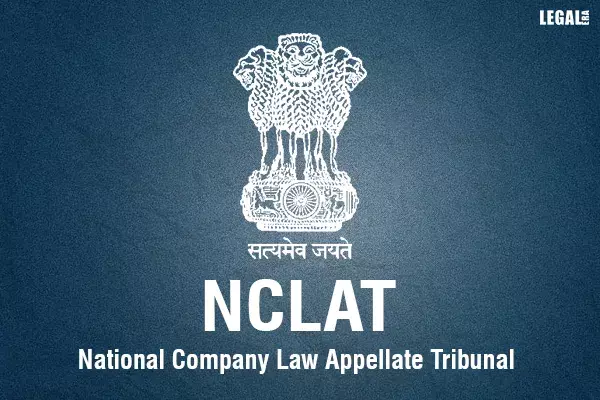NCLAT Delhi: Adjudicating Authority's Discretion Cannot Override Coc's Commercial Judgment; Overturns Order For Breach Of Natural Justice
The National Company Law Appellate Tribunal (NCLAT) in Delhi, led by Justice Ashok Bhushan (Chairperson) and Mr. Arun Baroka;

NCLAT Delhi: Adjudicating Authority's Discretion Cannot Override Coc's Commercial Judgment; Overturns Order For Breach Of Natural Justice
The National Company Law Appellate Tribunal (NCLAT) in Delhi, led by Justice Ashok Bhushan (Chairperson) and Mr. Arun Baroka (Technical Member), overturns a ruling on natural justice violations, asserting that the Adjudicating Authority (NCLT Mumbai) lacks the authority to replace its own judgment with the commercial discretion of the Committee of Creditors (CoC).
SKS Power Generation Chhattisgarh Limited (the corporate debtor) entered the Corporate Insolvency Resolution Process (CIRP) on April 29, 2022. Following this, the Resolution Professional (RP) organized a negotiation and bidding process to determine the highest bidder or commercial bid. The resolution plan presented by Sarda Energy and Minerals Limited (SEML) garnered 100% approval from the CoC.
In its Order dated October 6, 2023, the NCLT Mumbai, while reviewing the application for approval of the resolution plan, noted several procedural flaws in the negotiation and bidding process. It deemed the CoC's decision likely to be unfair due to its reliance on inaccurate data. As a result, the resolution plan submitted by SEML was sent back to the CoC for reconsideration.
Appeals have been filled by the Successful Resolution Applicant (SRA) SEML, one of the unsuccessful Resolution Applicants, Vantage Point Asset Management Pte. Ltd., and the RP of the corporate debtor against the aforementioned order.
The NCLAT Delhi rejected the appeal overturning ruling on the breach of natural justice, affirming that the Adjudicating Authority (NCLT Mumbai) lacks the authority to supplant its own judgment over the commercial discretion of the CoC.
The Appellate Tribunal observed that the adjudicating authority erred by not allowing the CoC, RP, and SRA to elucidate the terms of the SRA's resolution plan. It was wrongly presumed that the RP had not furnished pertinent data to the CoC without seeking clarification from the RP. Additionally, it inappropriately replaced its judgment with that of the CoC, necessitating the overturning of the order due to the violation of natural justice principles.
The NCLAT Delhi observed that the adjudicating authority misinterpreted the tribunal's judgment in the `Darshak Enterprises and PNC Infratech' case to establish a new basis for contesting the resolution plan. It exceeded its jurisdiction under the Code by independently assessing and scoring the resolution plans using the evaluation matrix and interpreting financial data presented to the CoC. Furthermore, the judging authority's decision to deem the CoC's decision perverse to justify its intervention in the resolution plan approval process is not permissible. Additionally, its conclusion that the SEML proposal only covered INR 122.23 crores of margin money and that INR 58.08 crores did not benefit the financial creditor is also incorrect.
The NCLAT emphasized that the CoC comprised the Bank of Baroda and the State Bank of India, two of India's largest banks, fully apprised of the details of the various resolution plans, including the handling of bank guarantees, margin money, and equity value. They meticulously evaluated all the resolution plans and subsequently endorsed the resolution plan of SEML with a unanimous 100% vote. Furthermore, the findings regarding the total bank guarantees and bank guarantee margin money by NCLT Mumbai were factually inaccurate. Consequently, the unsuccessful resolution applicants, namely Vantage Point Asset Management Pte. Ltd. and Torrent Power Ltd., lack the right to contest the resolution plan sanctioned by the CoC.
The NCLAT also underscored that an adjudicating authority's intervention in the CoC's decision concerning a resolution plan is confined to Section 31(1) of the Code. Additionally, as per the Supreme Court's ruling in Kuldeep Singh v. Commissioner of Police and Ors., it is imperative to clearly distinguish when characterizing a decision as perverse. Minor procedural lapses or similar issues are insufficient grounds to label a decision as perverse. Furthermore, the NCLAT noted the Supreme Court's stance in M.K. Rajagopalan v. Dr. Periasamy Palani Gounder and Anr., asserting that the CoC's commercial judgment is valid only when all relevant information is presented and thoroughly deliberated upon by its members. Therefore, in the present case, if all pertinent materials are available and discussed by the CoC, its decision cannot be deemed perverse. Consequently, a decision can only be criticized if there is a substantial error in the decision-making process that hinders the CoC from reaching a prudent commercial judgment.
In conclusion, the NCLAT overturned NCLT Mumbai's Order dated October 6, 2023, and remanded the Resolution Plan for reconsideration. It directed that the RP, SRA, and CoC be afforded an opportunity to provide their explanations. Moreover, given that the plan has been awaiting approval since June 2023, the NCLAT instructed that the application be resolved within 60 days of this order.

